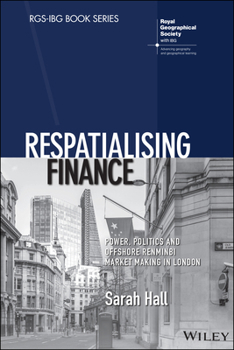Respatialising Finance: Power, Politics and Offshore Renminbi Market Making in London
Select Format
Select Condition 
Book Overview
One of the first detailed empirical studies of how and why London became the leading western financial centre within the wider Chinese economic and political project of internationalising its currency, the renminbi (RMB).
Examines how political authorities in both London and Beijing identified the potential value of London's international financial centre in facilitating and legitimising RMB internationalisation Features original data from on-the-ground research in London and Beijing conducted with financial and legal professionals working in RMB markets Offers an original theoretical approach that brings economic geography into closer dialogue with international political economy Illustrates how financial centres are not simply containers and facilitators of global financial flows - rather they serve as territorial fixes within the dynamic and crisis-prone nature of global finance A sympathetic critique of existing work in economic geography, as well as within the broader social sciencesFormat:Paperback
Language:English
ISBN:1119386047
ISBN13:9781119386049
Release Date:April 2021
Publisher:Wiley
Length:192 Pages
Weight:0.57 lbs.
Dimensions:0.4" x 6.0" x 9.0"
Customer Reviews
0 rating





